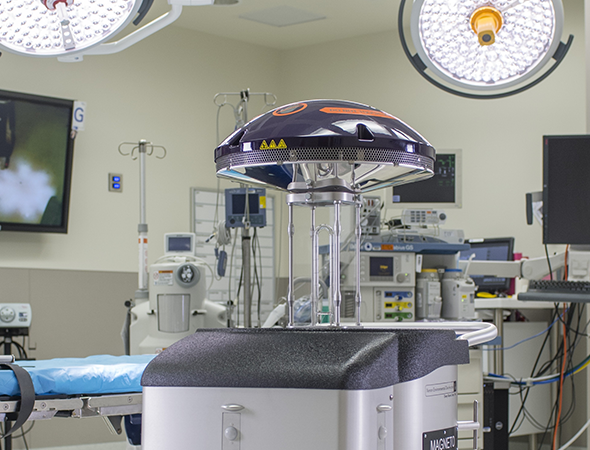
The VA hospitals in Middle Tennessee have added a new layer of infection control: Waist-high, germ-zapping robots are being deployed throughout the VA, which has become a leader in the health care industry’s fight against drug-resistant superbugs.
The cleaning staff at the VA’s Nashville campus rolls the unit by a hospital bed after the linens have been stripped between patients. Then they optimize the room to receive as much light as possible and let the bug zapper do the rest.
“Things like drawers and cabinets and things of that nature, we want to open up everything so we can expose all those surfaces,” says Gary McCarthy, chief of environmental management services at the Tennessee Valley VA system.
Once the technicians are out of the room, a lantern emerges from the top of the robot and pulsed xenon ultraviolet light blasts the germs for five minutes. The superbug zapper shuts down before the staffer comes back in. A motion sensor would cut it off if someone interrupted the cycle.
Often, a second or third cycle is needed to treat an adjoining bathroom and sometimes on the other side of the hospital bed, depending on layout.
With two robots at the Nashville campus and another pair at the Murfreesboro campus, the machines hit a collective 27 rooms a day on average. They’re the first at VA hospitals in Tennessee, according to a spokesperson, and some of the only ones at any hospital in the Nashville area. They’re pricey — more than $100,000 a piece — but McCarthy says the automation is worth the cost given the potential for preventing one of the 75,000 hospital infection deaths in the U.S. each year.
“It’s inevitable that somebody will acquire a hospital-acquired infection,” McCarthy says. “But the goal is to try and minimize that as much as possible.”
While the VA gets dinged for patient wait times and its bureaucratic headaches, the mammoth veteran hospital system gets a gold star for infection control. Studies in recent years from the CDC have found the VA to be more aggressive and successful at controlling infection rates than the nation’s other large hospital systems, though Nashville-based HCA has also been a leader among for-profit chains, mimicking much of what’s implemented by the VA.


